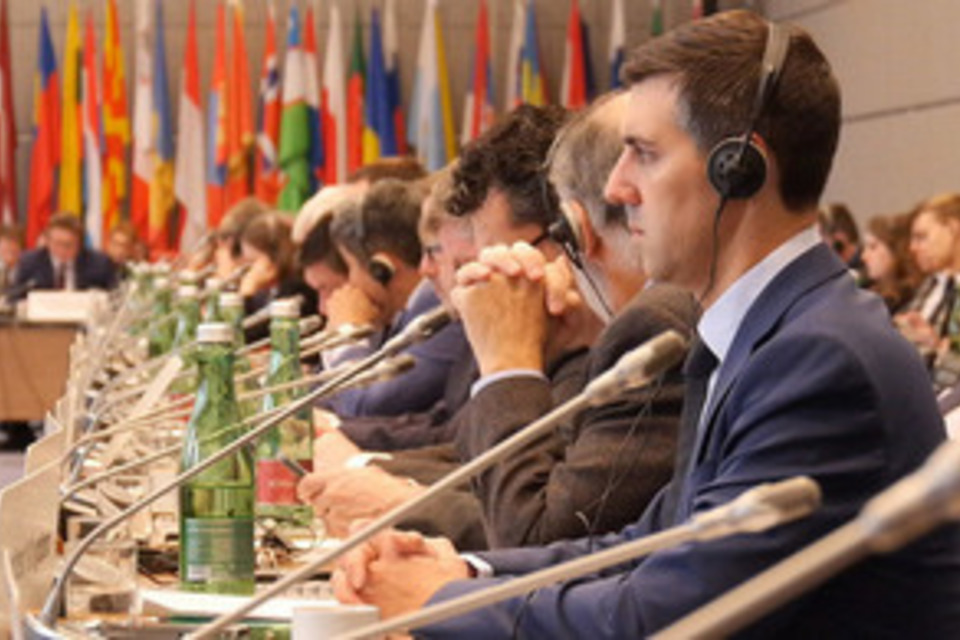Protecting human rights during the coronavirus (COVID-19) pandemic: joint statement
Delivered by Ambassador Neil Bush at the virtual OSCE Permanent Council on 30 April 2020.

Mr Chairman,
The challenge the world faces in responding to COVID-19 is exceptional and unprecedented. It affects individuals and communities in all regions of the world, including the OSCE, and across all walks of life. It is a threat that does not recognise borders, and is one that we must tackle together.
We thank the Chair in Office, the Director of ODIHR, the Representative on Freedom of the Media, the High Commissioner on National Minorities, and the Secretary General for their clear messages on the importance of upholding OSCE commitments, including on human rights and fundamental freedoms, during this unprecedented time.
In line with the recommendations being made by the World Health Organisation, States are rightly taking exceptional measures as they seek to halt the spread of the virus. However, some of these measures have potentially profound effects on individuals and societies, and impact on people’s enjoyment of their human rights.
There is a risk that some measures could have a disproportionate impact on marginalised and vulnerable groups, including the elderly, minorities, detainees, people with disabilities, and migrants, refugees and internally displaced people. The impact of this crisis risks exacerbating inequalities, particularly as we have noted for women and girls. Measures taken to tackle the crisis must be designed to mitigate this, rather than contribute to it.
The phrase ‘we are all in this together’ only has meaning if we can avoid the most vulnerable suffering disproportionately.
The international response to the pandemic has the potential to affect all human rights: civil and political, and well as economic, social and cultural. Restrictions on freedom of opinion and expression, peaceful assembly, freedom of movement, and freedom to seek and receive information need to be considered with great care, and with legal safeguards. Civil society organisations, human rights defenders and journalists must be able to perform their independent roles, now more than ever.
A free press is crucial for a comprehensive response to the ongoing COVID-19 pandemic, Their work serves to keep societies informed, to promote proper health measures and to counter false or misleading information. It allows people to access credible information to protect their health and that of their communities. It allows people to recognise problems that must be addressed and to hold their governments to account.
It is vital that any restrictions on human rights are lawful, both as a matter of international human rights law and national law. Measures to address COVID-19 should be targeted, time-limited, and subject to regular review to ensure they remain necessary as a response to the pandemic.
States must not use COVID-19 as a cover for repressive action, for example, the silencing of human rights defenders or journalists. All States must ensure they respect their human rights obligations, including OSCE commitments, in responding to the COVID-19 pandemic.
It is imperative that, as we respond to this situation, at a community, national and international level, that human rights are not forgotten, and that no one is left behind.